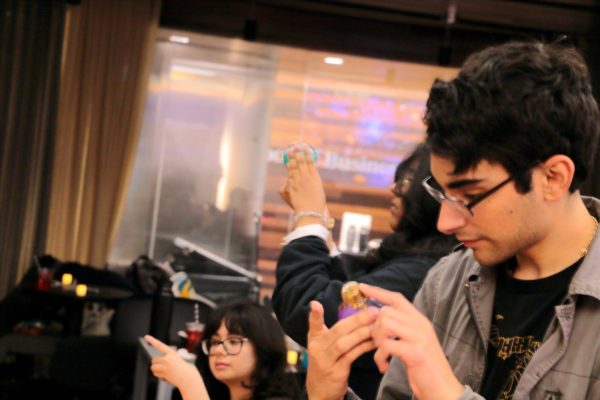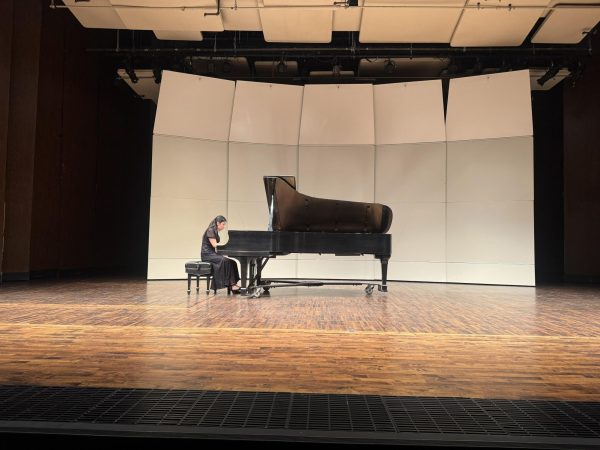CASE-OU featured students’ Environmental StoryMap presentations
Campus Alliance for Sustainability and the Environment (CASE) at Oakland University featured a group of students from Literature and the Environment (ENG 3681) and Postcolonial Literature and Extraction (ENG 3800) to share their presentation on Environmental StoryMap projects on Wednesday, March 23.
First established two years ago with the idea of creating “a campus community around the concern for sustainability and environmental justice,” CASE-OU comprises over 100 faculty-scholars, staff and students. They work together toward the goal of arriving at more integrative and holistic solutions to issues involving factors affecting climate impacts.
These projects utilized the Geographic Information System (GIS) mapping software that integrates spatial and verbal elements, geography and narrative to tell interactive stories about places, ecosystems, environmental exploitation and colonialism.
The software is currently being virtually used by hundreds of thousands of organizations in a variety of fields for mapping that allows easier and more efficient communication, analysis, sharing of information and solving complex problems around the world.
Dr. Jeffrey Insko, professor of English, coordinator of American Studies and steering committee member for CASE-OU, created accounts for students and added everyone in the class to a collaborative StoryMap, where they could add information about the five post-colonial nations (India, Ecuador, Canada, Nigeria, and the Caribbean) on one map. According to Insko, this mapping software assimilates shared Google Slides, but with many more features.
“I’m so proud of you all,” Dr. Insko, who teaches both ENG 3681 and 3800 courses, said at the end of the presentations. “They were all amazing presentations.”
A total of eight presenters shared their findings and research about different countries and regions through mapping. The followings are the groups/individual presenters with their country of focus:
Sonja Wilhelm, Mariah Brown and Josh McNeil (India)
Erika Head, Ethan Berent and Alexandra LaBrecque (Ecuador)
Erin Sorenson (Crawford County, MI)
Paige Therrian (South Higgins Lake, MI)
Erika Head, a sophomore at OU double-majoring in Communication and English Secondary Education, presented information about Ecuador along with her group members – Berent and LaBrecque. According to her, her group’s goal for their presentation was to raise awareness about the history surrounding post-colonial nations and how oil extraction can result in brutal living conditions and death for the people of the country.
“It is always rewarding to see our semester-long projects come together,” Head said. “Mapping helped me understand the differences between America and Ecuador because while both countries are on the same side of the world, their development, government, technology and ways of life look extremely different.”
She pointed out a disadvantage of more than one individual not being able to edit and publish their changes at a time, which can become problematic with larger classes. Despite this drawback, she also emphasized some key features that GIS mapping software provides.
“I am a visual learner, so it was helpful to plot points on the map and see where in the world things are happening,” Head said. “Another feature in this software is being able to add external links within our explanations. It is a nice way to have a variety of information, sources, pictures and links present in one website where we created our project. I would recommend the mapping to anyone wanting to create a visual representation with the ability to add one or more locations.”





